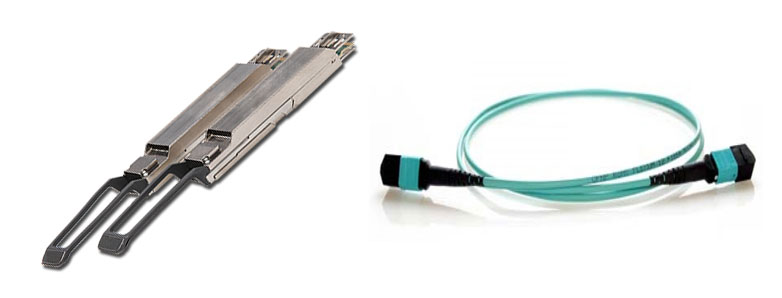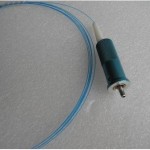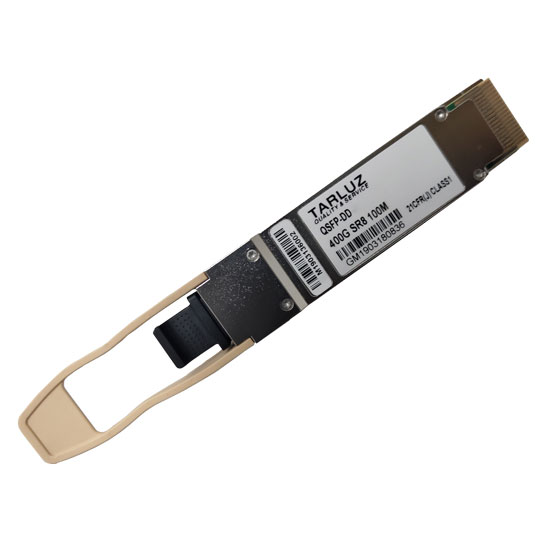Q: What is Linear Pluggable Optics (LPO)?
A: Linear Pluggable Optics refers to a solution that utilizes a low-power pluggable module that does not incorporate a DSP chip. The signal path from end to end in the link is considered linear, enabling lower power consumption through specialization. As with traditional pluggable modules with a DSP, an LPO MSA-compliant link will work in a full range of networking and computing equipment such as switches and NICs.
Q: What are the advantages of LPO?
A: By eliminating the pluggable module’s DSP/retimer function, LPO modules are lower power, lower cost, and lower latency than competing solutions.
Q: How does LPO work?
A: Modern Application Specific Integrated Circuits (ASIC) in a switch or Network Interface Card (NIC) have extremely capable transmitters and receivers which can compensate for significant link degradation. These capabilities are usually not fully utilized, however, when connected through a retimed pluggable module. When LPO modules are used, the link becomes a seamless linear channel, and the full capabilities of the ASIC transmitters and receivers can be utilized for equalization. This LPO module-based link has much lower power than if a retimed module was used.
Q: How is an LPO module different to a module using retimers?
A: Since the LPO module is operating linearly, it is not making complex digital operations and decisions. The entire signal path utilizes the modern ASIC’s equalization capability, allowing for a more simple, optimized solution. This is in contrast with retimed modules where the module makes complex digital operations and decisions in both the transmit and receive paths in the DSP which consume power. Without the DSP, the module is lower power, lower cost, and lower latency.
Q: What are the system requirements for using LPO?
A: Systems compatible with LPO modules require capable ASICs and well-designed transmission lines. Any pluggable module form factor can be used to make LPO modules since the architecture easily fits in associated power envelopes.
Q: Can LPO modules interoperate with retimed modules?
A: Yes, LPO modules can interoperate with retimed modules. As a part of the LPO MSA, guidelines for use with retimed modules will be provided.
Q: How does this MSA relate to other industry standards?
A: The LPO MSA complements and builds upon other industry standards, such as IEEE 802.3 and OIF, and MSAs such as OSFP or QSFP-DD. The LPO MSA will specify product and system-level interoperability requirements that span both the electrical and optical interfaces operating at 100 Gb/s per lane and above.
Q: Will LPO work with Ethernet Traffic?
A: Yes, LPO MSA-compliant modules are protocol agnostic. The initial MSA specifications will be optimized for Ethernet data rates.
Q: Is LPO as robust as a DSP-based solution?
A: Yes, LPO MSA-compliant module is as robust as DSP-based module solutions. The LPO MSA will develop specifications which provide this level of robustness across the optical networking ecosystem.
Q: Will the LPO MSA’s specifications ensure interoperability?
A: Yes, the LPO MSA will ensure interoperability between network equipment and LPO MSA-compliant modules. The specifications developed by its members will ensure multi-vendor interoperability.
Q: Will the LPO modules work on every port in my switch?
A: Yes, the specifications will ensure that any LPO MSA-compliant port on a switch or NIC (or other network equipment) will work with any LPO MSA-compliant module.
Q: What will be the initial focus of the MSA?
A: The initial focus of the LPO MSA is to ensure interoperability of links consisting of only LPO modules operating over parallel or duplex single-mode fiber (SMF).
Q: What else will the LPO MSA be working on?
A: Beyond the initial LPO-to-LPO specifications, the LPO MSA has a roadmap that will address links where an LPO module interfaces to a retimed module, a linear receive optical (LRO) module, other media such as multimode fiber (MMF), and higher rates such as 200 Gb/s.








